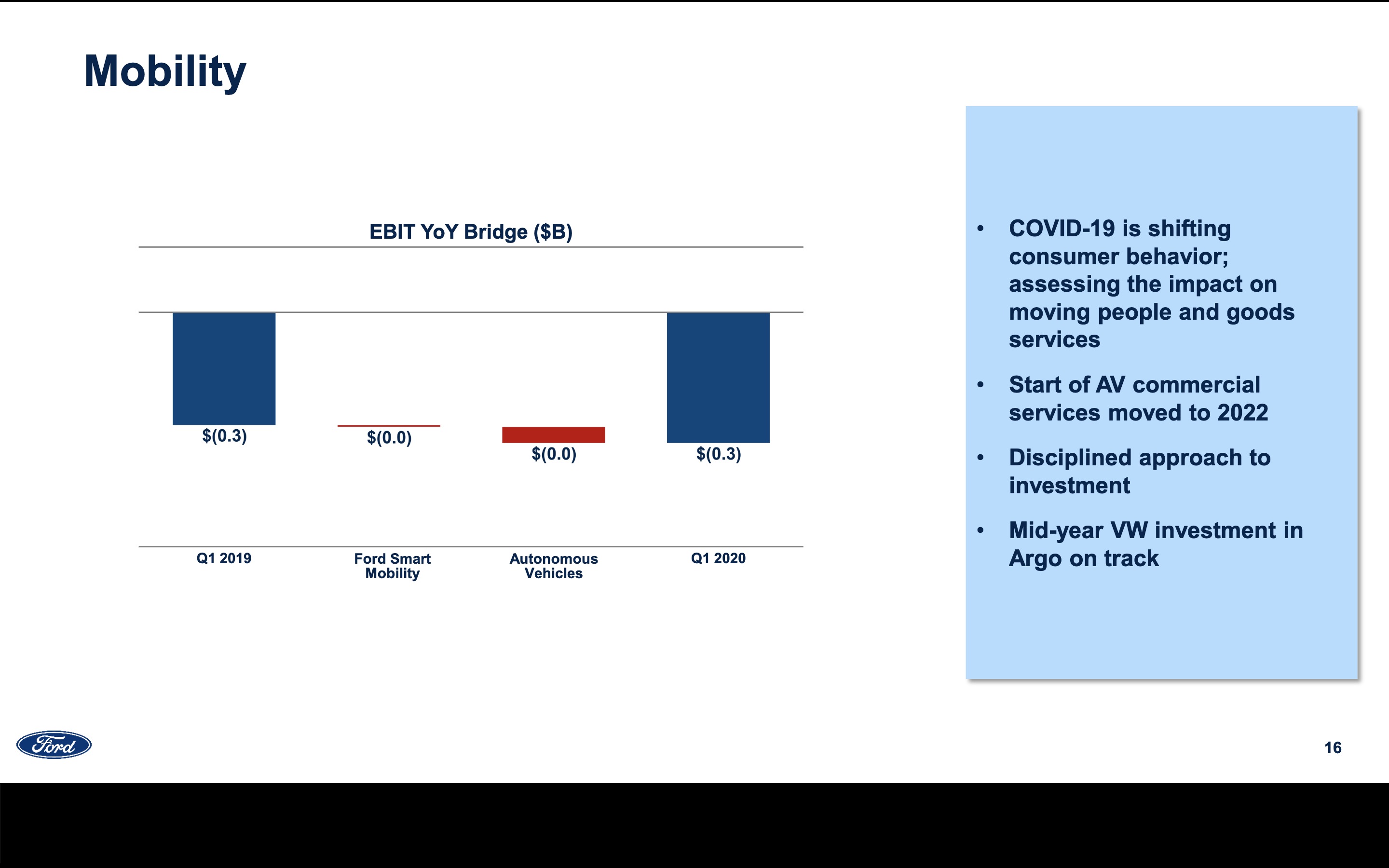Ford postpones autonomous vehicle service until 2022
Ford said Tuesday it will delay until 2022 plans to launch an autonomous vehicle service, as the COVID-19 pandemic has prompted the company to rethink its go-to-market strategy.
The news was shared as part of Ford's quarterly earnings, which was released after the market closed Tuesday. Ford reported a $2 billion loss in the first quarter compared to a profit of $1.1 billion in the same period last year. The company warned that losses during the second quarter will widen as the COVID-19 pandemic continues to disrupt its business.
Ford is a bit different from other companies that have launched autonomous vehicle pilots in the United States. The automaker has been pursuing two parallel tracks that were supposed to eventually combine ahead of a planned commercial launch in 2021. The automaker is testing and homing in on what its AV business model might look like, while separately developing autonomous vehicle technology.
Argo AI, the Pittsburgh-based company into which Ford invested $1 billion in 2017, is developing the virtual driver system and high-definition maps designed for Ford's self-driving vehicles. Ford has been testing its go-to-market strategy through pilot programs with partners like Walmart, Domino's and Postmates, and even some local businesses.
Ford said Tuesday that it needs to study the long-term impacts that the COVID-19 pandemic will have on customer behaviors.
Here is the statement from Ford in response to questions about its autonomous vehicle plans:
Given the challenges of the current business environment, as well as the need to evaluate the long-term impact of COVID-19 on customer behaviors, Ford made the decision to shift the launch of its self-driving services to 2022. Understanding customer behavior is a critically important part of building a new mobility service built around trust and making people's lives easier.
Taking the time to research changes in customer behaviors provides Ford with an opportunity to evaluate and potentially change our go-to-market strategy to meet new consumer demands. As part of this evaluation, we also want to make sure the customer experience we are building offers people peace of mind knowing they, or their packages, are in a safe and protected environment inside our vehicles.
COVID-19 has already affected consumer behavior. Ford's experience in China, where the coronavirus first arose, prompted the automaker to turn to online sales. CEO Jim Hackett said now one-third of sales are online in China.
Ford also anticipates it will change demand for certain products.
"We believe this pandemic could affect our customers' lives and work for many years to come, with zero touch as an integral part of their lives going forward, perhaps spurring on even more interest in adoption of autonomy especially goods delivery and micromobility," said Ford Chief Operating Officer Jim Farley during the company's earnings call Tuesday.
In a slide shared as part of the company's quarterly earnings call, Ford reported that its "mid-year VW investment in Argo is on track." VW Group announced in July 2019 it would invest $2.6 billion in capital and assets into Argo AI .
Ford's other more traditional vehicle launches are still on schedule, including its redesigned F-150 truck as well as a hybrid electric version. The company still plans to reveal a new Ford Bronco and will continue to launch 30 market-specific Ford and Lincoln vehicles in China over the next three years, 10 of which will be electric, Farley said.
The company said that it will update the timing on launches of its three new products - a small rugged offroad utility vehicle, the electric Mustang Mach-E and the Bronco - once it has a better understanding of its operational readiness as manufacturing comes back online.

